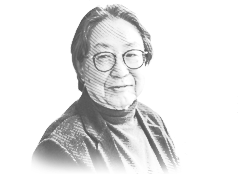Berezin’s research asks how shared cultural meanings and practices shape 1) political institutions such as the state; 2) social processes around political movements and ideologies; and 3) agents through the construction of political identities. Her methodology is primarily comparative and historical. Her current work focuses on contemporary sites of social, political and cultural change–places where political arrangements have collapsed and new institutions and identities are in the process of formation.
Expertise
Current Research Interests
Contemporary sites of social, political, and cultural change; fringe parties in France and Italy as response to Europeanization; institution building, citizenship, and social capital in early 20th-century America and Europe; role of emotions in macrosociological systems
Selected Publications & Presentations
- (With Martin Schain) Europe Without Borders: Territory, Citizenship, and Identity in a Transnational Age. Baltimore: Johns Hopkins University Press (2004).
- “Secure States: Towards a Political Sociology of Emotion.” In Sociology and Emotions. Ed. Jack Barbalet. Sociological Review Monograph, London: Basil Blackwell, 2002. Pp. 33-52.
- “Emotion and Political Identity: Mobilizing Affection for the Polity.” Passionate Politics: Emotion and Social Movements. Eds. James Jasper, Jeff Goodwin, and Francesca Polletta. Chicago: University of Chicago Press, 2001. Pp. 83-98.
- “The Euro is More than Money: Converting Currency, Exchanging Identity, and Selling Citizenship in Post-Maastricht Europe.” Policy Newsletter 1.1, Center for Economy and Society, University of Michigan Business School, Spring 2000.
- (With Jeffrey C. Alexander) “Democratic Culture: Ethnos and Demos in Global Perspective.” Special Issue of International Sociology 14, September 1999.
- “Democracy and Its Others in a Global Polity.” International Sociology 14, September 1999. Pp. 227-43.
- “Political Belonging: Emotion, Nation and Identity in Fascist Italy.” State/Culture. Ed. George Steinmetz. Ithaca: Cornell University Press, 1999. Pp. 355-77.
- Making the Fascist Self: The Political Culture of Inter-War Italy. Wilder House Series in Culture, Politics and History. Ithaca: Cornell University Press, 1997.
- “Politics and Culture: A Less Fissured Terrain.” Annual Review of Sociology 23, August 1997. Pp. 361-83.
- “The Dead are Equal: History Making, Moral Relativism and the Rise of the New Italian Right.” Comparative Study of Social Transformation (CSST), Working Paper #109; Center for Research on Social Organization (CRSO), Working Paper #534, University of Michigan, Spring, 1996
- “Cultural Form and Political Meaning: State Subsidized Theater, Ideology and the Language of Style in Fascist Italy.” American Journal of Sociology 99, March 1994. Pp. 1237-86.

